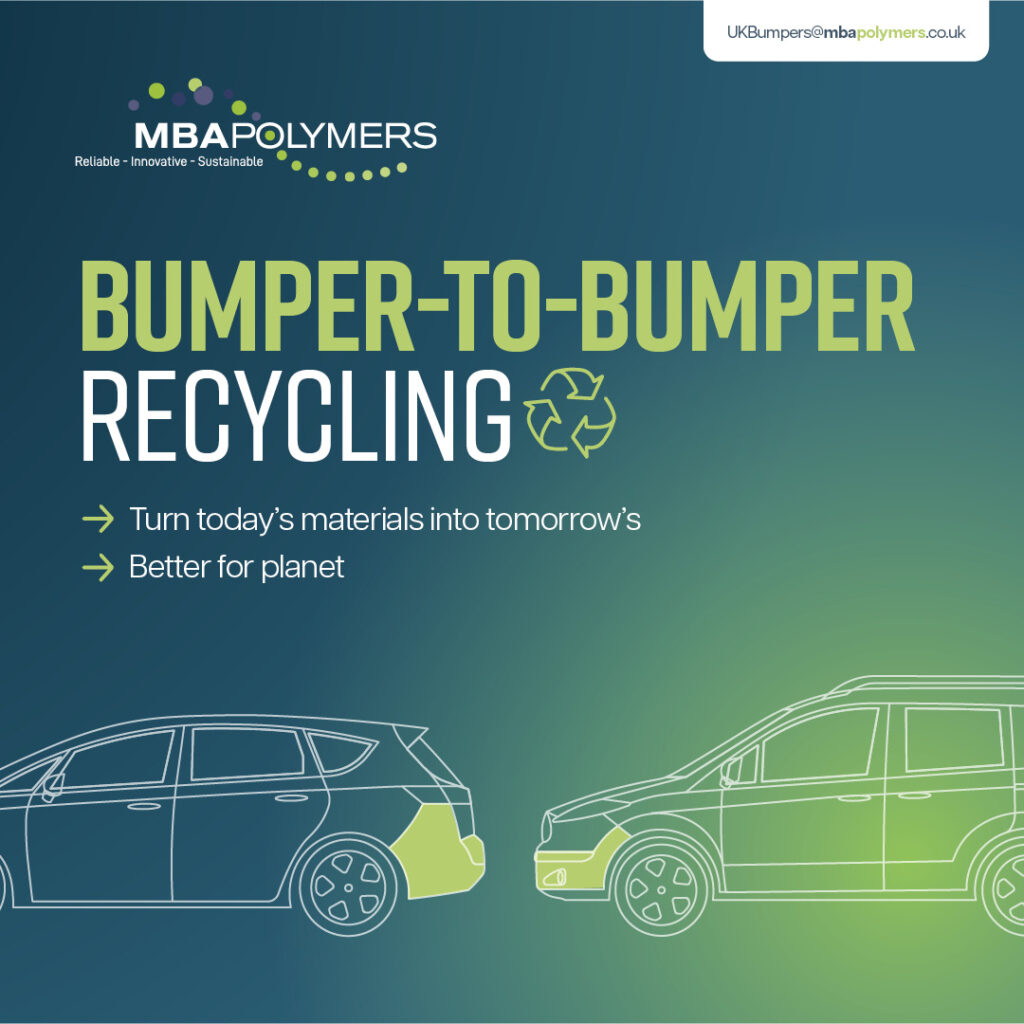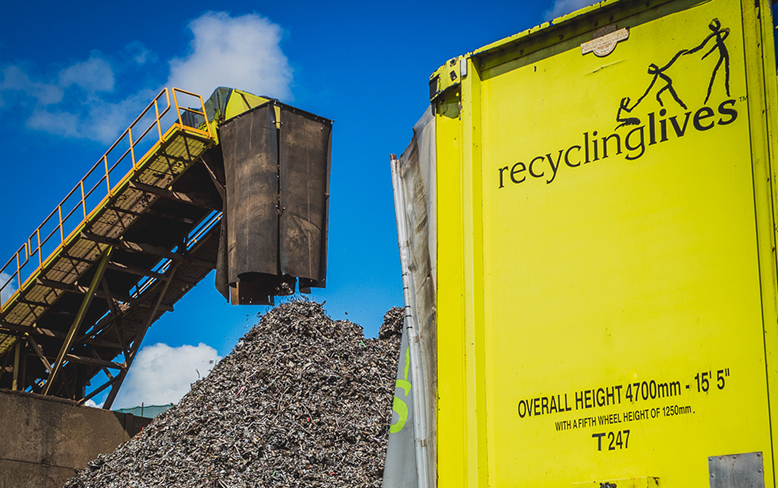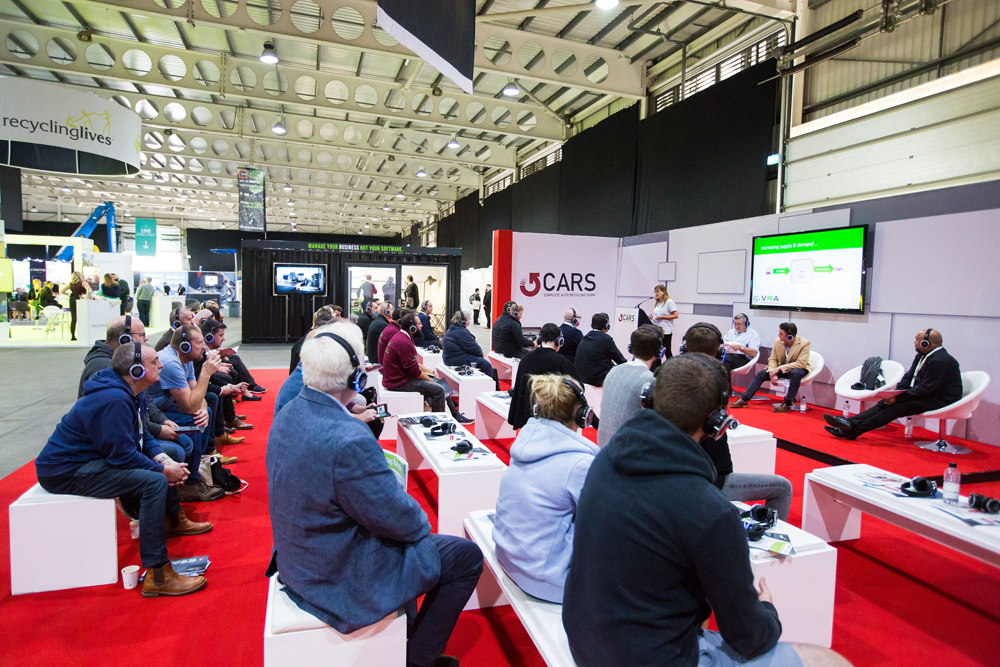This weeks CARS-Expo proved a big draw yesterday in Doncaster and continues today (June 6).
The event, which centers around end-of-life vehicle recycling, saw a warm welcome from the Deputy Mayor of Doncaster David Nevett who spoke of the need for good environmental practice and highlighted the work of Motorhog which hosts the event this year.
Alongside a range of exhibitors and live demonstrations, a packed conference theatre heard what the future might bring for the end of life vehicle sector with electric vehicles certainly in the road ahead.
This included stands showing state-of-the-art depollution equipment, safety equipment plus a range of other services and technology. Trade associations represented included the Motor Vehicle Dismantlers Association (MVDA).
Conference
The conference was addressed by Bernadette Prosser, environmental programmes manager, UK and Ireland for the BMW Group and she also leads the end of life vehicle (ELV) recycling team for the Society of Motor Manufacturers and Traders.
Ms Prosser outlined the recent history of ELV recycling and said while vehicle technologies are evolving, the recycling industry is evolving too.
In 2005/06 she noted that the ELV Directive had come into force and there was a technology and skills gap to be bridged. That gap has been bridged and now I think the whole of recycling has evolved. We as manufacturers are now being asked to look at how we build vehicles so that we can take them apart.
Ms Prosser equated the vehicle recycling process today as urban mining and in the next 20 years if I was a betting person, I would see a time when we are actively mining landfills to find resources that have been lost to the manufacturing process.
Recycling
In terms of cars she noted how the resources were there for recycling and increasingly they would be from electric cars with even today lots of copper and high value materials there for the recyclers.
Todays recycling scene, she said, was one from the technology side of the post shredder plants being developed in the UK and also on the Continent. Everyone is watching quite eagerly EMRs gasification plant in the Midlands which will hopefully open later this year.
Ms Prosser also said that the recycling targets for end of life vehicles might change to be more in line with the process adopted by the European Union for waste electrical equipment and for batteries.
This would relate to targets being set in relationship to the amount of cars sold or put on the market. She explained that this was because a large number of vehicles were going missing either via people chipping away at the edges of the industry or through CODs [certificates of destruction].
As for the future, Ms Prosser said that electric vehicles were a big topic for BMW and a big challenge for the recycling industry. She pointed to the I3 and I8 developed by BMW and sounded a note of caution in dealing with electric vehicles. A lot of tests had been carried out to protect occupants of cars and that BMW mechanics were being specially trained to deal with electrics and batteries that could be in excess of 400 volts capacity.
Lightweighting
For recyclers, she indicated that there would be value in the cars as they were lightweighted with more valuable materials and that there was a much greater use of copper and aluminium around the batteries.
‘That [technology] gap has been bridged and now I think the whole of recycling has evolved. We as manufacturers are now being asked to look at how we build vehicles so that we can take them apart.’
Bernadette Prosser, environmental programmes manager, UK and Ireland for the BMW Group
But, when questioned, she said that it was still unclear as to who would own the batteries at end of life, it might be the dismantler or it might be the car company and this was a matter still under discussion. This in part was linked to the question of what would happen to the batteries at the end of life as they would have only been used at a 30% level and at last 40% more was still available. One option may be using them as power stores for energy sources such as wind farms.
Lighter cars
Also speaking was Andy Latham, managing director of Salvage Wire. He said that the ELV recycling sector needed to be well-prepared for future changes. You only have to read the car magazines and look around to see lighter vehicles, more use of aluminium, vehicles which can almost steer themselves and even the Google driverless car.
He added: Ultra high tensile steels are making cars lighted and stronger than ever before.









Subscribe for free